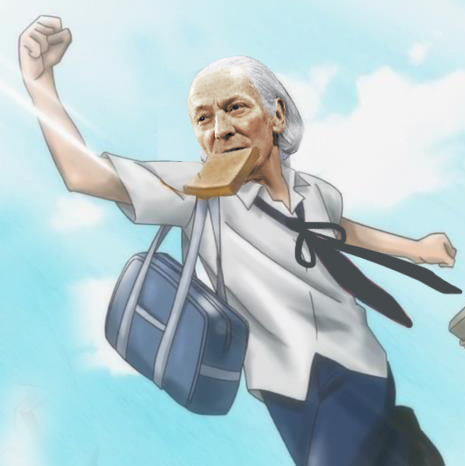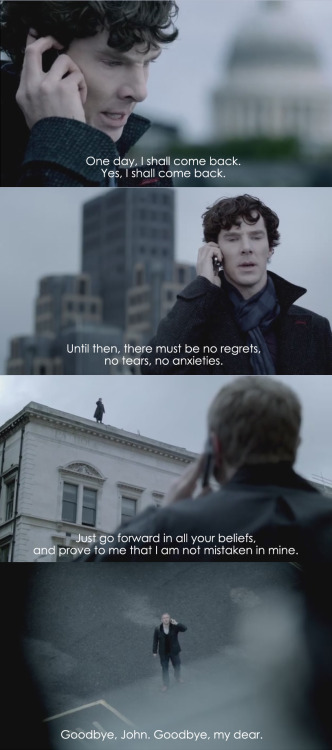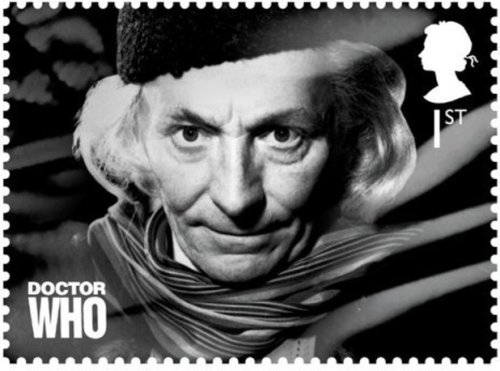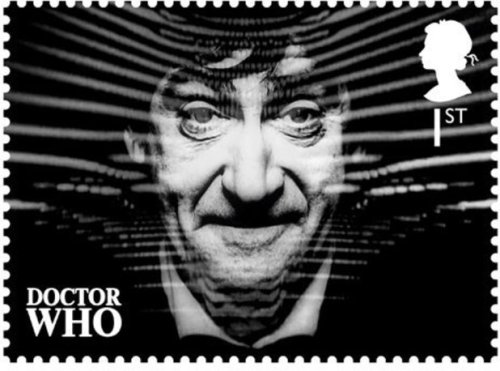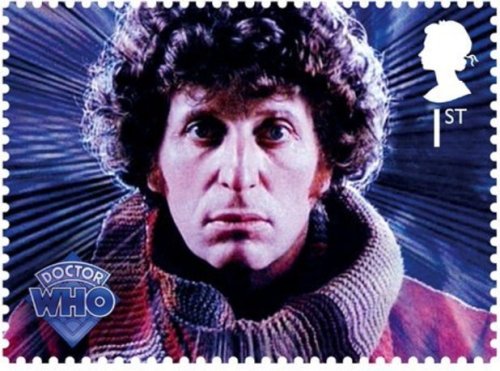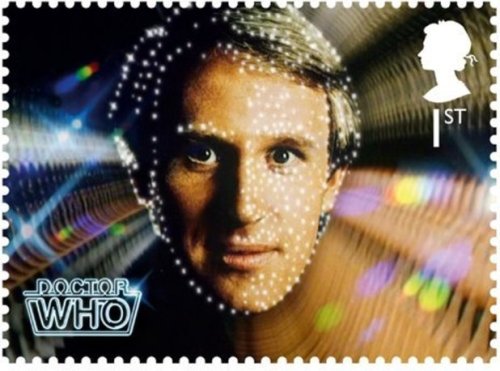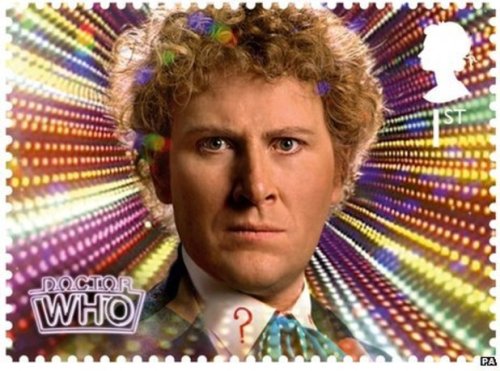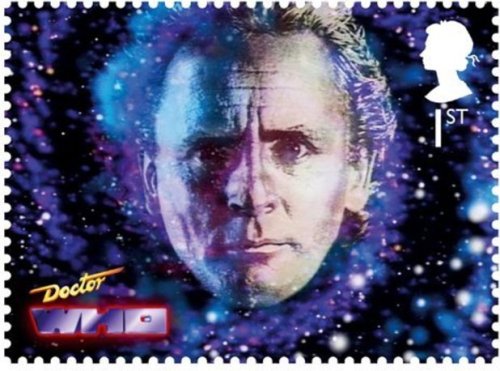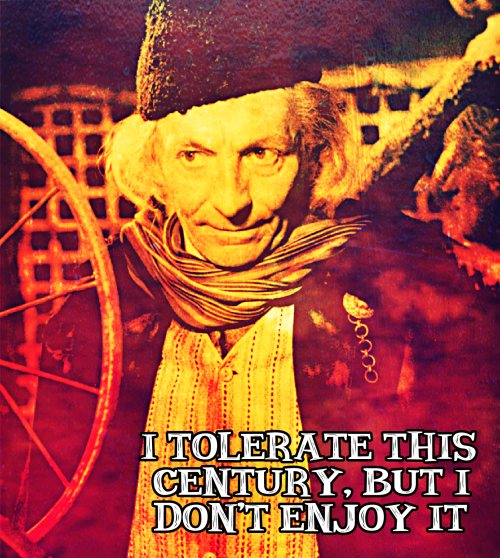#william hartnell
There actually was supposed to be an episode where The Doctor has to go kill some cult leader, but ends up becoming like said cult leader. However, this was scrapped due to it being too similar to Francis Ford Coppola’s cinematic masterpiece Apocalypse Now
Tom Baker isn’t a real person, he’s actually David Bowie with a tribble stuck to his head.
Fact #1159
Sir Patrick Stewart was the original choice for a doctor, but two doctors being played by a guy named Patrick was too powerful for audiences
The mysterious faces seen during the mindbending sequence in the story ‘The Brain of Morbius’ are actually the previous faces of Susan and Romana.
Susan Wainwright from Sims 3 is actually a far-flung regeneration of Susan Foreman.
Chang Lee is'nt the Asian Child. It was mispelt. Chang Lee is actually the AceIan Child.
“What? AceIan? I thought Ian stayed with Barbara forever.” you might say. Yes, he did, They had three children together - John (born 1966), Gillian (born 1969), and Steven (born 1972) Chesterton.
But Ian and Barbara also once went to a reproductive science convention in the late 2020’s. Where Ian’s sperm and Barbara’s eggs were taken away so they could be donors.
Ace became a Time Lady and regenerated, one of her incarnations taking a form of South-East Asian phenotype. (usual SE Asian skin + William Russel skin = average out to Yee Jee Tso skin.)
This incarnation of Ace, used Ian’s sperm to get pregnant, and nine months later, gave birth to a son that looked like a paler skinned version of her. She named him Leefarivopilarnac Firebrand McShane Lungbarrowmas. “Lee McShane” for short.
As people don’t age\grow up on the TARDIS, Ace, her current Companion, and baby Lee, settled down together on a planet far away from both Earth and the current Companion’s native planet, centuries after from both of their native times. But it was a cozy planet! Lee lived there for the first 18 years of his life. When he turned 18, he decided to settle down in 1992 San Francisco, and changed his name to Chang Lee via psychic paper.

Doctor Who: Season 1, ep 26 The Key of Marinus
“Oh dear, I’m going to be late!”
My name is ψƭdzȄĬ®̕ĕŗDzĬ¿ʁƭÈƂŎ and starting today I’m going to be a Time Lord!
Post link
Peter Capaldi’s 12th Doctor regeneration was everything he deserved. Twelve was the most tormented Doctor, the most haunted by his past, so full of secret pains we would never know about. He really felt like he was hiding back so much, and was putting on a mask so much of the time. Seeing the Doctor find peace in himself, and the optimism in himself (herself!!!) for the future, was absolutely incredible. I honestly can’t think of a more suiting end for Twelve. It was bittersweet, but I feel like I can comfortably and peacefully say goodbye.
And on that note, bring on Jodie Whittaker!!!
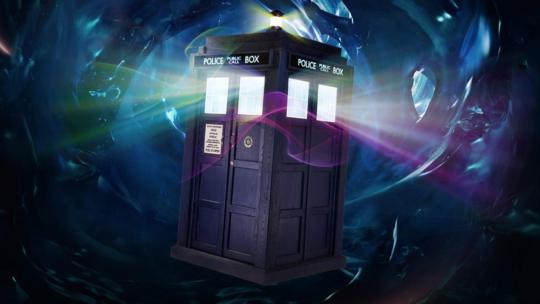
Over the last 55 years, we’ve seen a lot of people come and go through the doors of the TARDIS. For the most part, once they are gone, they tend to stay gone. On rare occasions, we get to see them again, although for the most part, if they return, they tend to return to the same Doctor they started with. Other mediums have tackled the idea of introducing companions to different Doctors regularly, but the main show saves these matchups for special events. What if a past companion got a second chance to travel with a new Doctor though?
Perhaps the most obvious choice for this reward is Donna Noble. Originally intended to be a one-off character, Catherine Tate returned to play Donna in the 2008 series. After that series, Donna had her memories of her travels with the Doctor wiped to protect her brain from the Doctors memories. She would later return to the series but would only briefly regain her consciousness of her time in the TARDIS.
Of course, for her, traveling with a different Doctor could present a host of risks that wouldn’t come into play for other companions. The Doctor’s face might be different and the interior of the TARDIS unlike that which she is accustomed to, but the risk of ‘burning her mind out’ remains. Looking at where the character began before traveling with the Doctor versus all that she had become, putting her back where she started seems one of the more criminal departures of the show.
Recapturing the magic of the pairing of David Tennant and Catherine Tate also could prove to be complicated. For a purely speculative article, all the constraints of reality are gone, and fantasy pair-ups are supreme. It is a bit of a toss-up still as to which Doctor would be the most fascinating to see her with. I think we can safely remove Jon Pertwee’s Third Doctor. Donna already comes with a strong paternal influence in Wilf (Bernard Cribbens) and wouldn’t need Pertwee’s gentle fatherly nudging. Peter Davison’s Fifth Doctor already has traveled with the brash Tegan Jovanka (Janet Fielding), so pairing Donna with him would feel like a bit of a retread. Suffering foolishness wasn’t precisely Tom Baker’s strong suit making it difficult to imagine much coming of Donna roaming the timestream with the Fourth Doctor. The underlying malevolence of Sylvester McCoy’s Seventh Doctor would not sit well with Donna leaving him out of the running as well.
On to the Doctors of the modern era. I’ll admit to not really knowing enough about Paul McGann’s Eighth Doctor to know if the two characters would work well. There might be something in the exuberance of his early era to make for exciting television. Just getting any version of his Doctor back on the screen is appealing enough. His later hardened version of the character might prove too much for Donna’s sensibilities though so we’ll leave him out of the running. Matt Smith’s Eleventh Doctor was perhaps overly interested in his own history to be much of a guiding influence on Donna. Having not yet seen enough of Jodie Whittaker’s Thirteen, it’s difficult to tell if Donna could have a place in her TARDIS or not.
Of those who remain, there are intriguing possibilities for all. One can easily imagine the situations that would come up between William Hartnell’s First Doctor and Donna. There would be a certain charm in watching how little patience the two would have for each other’s idiosyncrasies. I’m not as sure about how the bumbling ways of Patrick Troughton’s Second Doctor would play. He was the first Doctor to really show how deep his friendships with his companions went and Donna would benefit from that. The arrogance of the Sixth Doctor would be well-tempered by Donna so it could be interesting to watch their adventures. Christopher Eccleston’s Ninth Doctor was looking to see the wonder in the universe again, and who better than Donna to show him that. Her eye for the injustices around her would also appeal to his nature.
Perhaps the most captivating matchup would be between Peter Capaldi’s Twelfth Doctor and Donna though. His questioning of whether or not he was a good man combined with Donna’s need to prove her worth would serve as good story fodder. Each character would emerge stronger from their time spent together. His arc of rediscovering who he is combined with her arc of discovering all she can become also play well off each other. He’d know well enough that she couldn’t find her memories of traveling with his previous incarnation. Having Donna replace Clara Oswald in Twelve’s narrative allows for the perfect denouement for both characters. Each would need to forget the other for the universe, and themselves, to survive. What better way to revisit Donna’s exit and return it to its heartbreaking status?
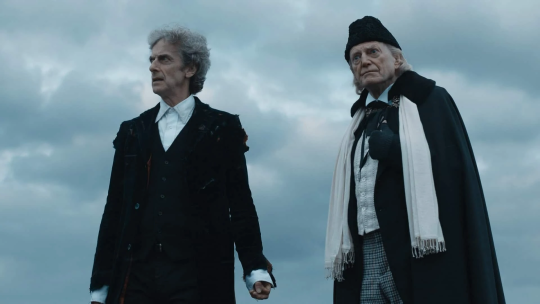
My late and great friend Quin was a Doctor Who fan. He and I watched many an hour of Doctor Who on Netflix while we lived together. The beautiful thing about watching Doctor Who with Quin was that we each experienced the show differently. Quin tended to like the romance stuff while I was more into the weird sci-fi elements. This difference was possibly no better exemplified than through our reactions to regeneration episodes. Having started on the Ninth Doctor, Quin needed a couple of weeks to mourn his passing before he could move on to David Tennant. While I do take a moment to say goodbye to the Doctor, a part of me is ready to move on to the next. Quin eventually warmed up to David Tennant and went through the same mourning phase after he left. Contrarily, my reaction to hearing the line “I don’t want to go,” was to say “Ew, go.”
Modern Doctor regeneration episodes are often gooey with mawkish sentimentality, all the more so when it’s also the showrunner’s final episode. It’s a trend that started with the Tenth Doctor and has continued so far. The closest approximation to such a drippy farewell from classic Doctor Who would be perhaps the Fourth Doctor dying around friends he barely knows, or the Fifth Doctor’s talking heads. Most of the classic Doctors die unexpectedly or off-camera. With “Twice Upon a Time,” being both Peter Capaldi and Steven Moffat’s final story in Doctor Who, we expect a bit of self-indulgence. We’ll grant them the odd flight of fancy as a sort of victory lap. We expect them to play the hits. But if I’m honest, it’s still kind of a lot.
I can’t imagine it’s an easy balance to achieve with a final episode of anything. There’s a desire to tell a compelling story while also crafting a sort of curtain call for all of the players. In the case of “Twice Upon a Time,” the former concern of compelling storyline doesn’t appear to be one of which Steven Moffat has burdened himself with. This isn’t an insult, merely an observation. An observation I believe is important when you consider Steven Moffat has always been the big ideas guy. Like the Twelfth Doctor saying “Can’t I ever have peace? Can’t I rest?” Moffat has decided to relax a little, and I’m so uncomfortable. Steven Moffat is in full-on rest mode. He’s your dad, you have friends over, and he’s walking through the kitchen with an open robe and day-old drawers on. Dude doesn’t give a fuck. The worst part is, he’s lingering and asking your friends questions about school. Mortifying.
Ok, so maybe it’s not just Steven Moffat being a little self-indulgent with their writing. I think I needed to vent because I just watched the opposite of “kill your darlings.” Steven Moffat took his darlings, this invasive species made in his image and said “Be free my darlings!” Like Tarantino and feet, David Lynch and dangerous women, or Larry Clark with shirtless dudes, Moffat has his own signature fixations. Who could forget his Edwardian dominatrix fetish as seen with Madame Kovarian, Missy, or Sherlock’s own Irene Adler? Or how about the time when the Teselecta extracts people at their time of death? Or when Missy extracts people at their time of death? Or when Testimony extracts people at their time of death? That one is definitely on display. But out of all of Moffat’s calling cards present and accounted for, perhaps the most insidious would be his casual misogyny.

With the introduction of the First Doctor into a modern Doctor Who setting, Moffat, in all of his infinite wisdom, decided to take the hard stance that the First Doctor, an alien from Gallifrey, would be hung up on 1960’s sexism and homophobia. It’s all done in a very winking fashion as well. “Look how far we’ve come since the backwards ’60s! Isn’t it crazy people used to talk like that? We’re so much further along now.” Like when Mel regenerated into River Song and the first thing she did was weigh herself and go shopping. Which is feminism because women do be shopping. I could have gone with one line that may have come off as iffy, but this was a recurring joke that felt dishonest to the character of the First Doctor. The First Doctor would never compare women to glass. He expected women to rise to their potential, not dust his fucking TARDIS. The jolly old smacked bottom line, on the other hand, is of course something he has and would say. So fair dos.

Thematically, introducing the First Doctor is a pretty clever move. As I mentioned above, I wasn’t a big fan of the Tenth Doctor’s departure. I began to wonder if the Tenth Doctor’s actual cause of death wasn’t old age while making his farewell tour. This story feels as though Moffat is trying to reinvent the concept but from a different angle. I touched upon it briefly in my previous review. The key difference being that while the Tenth Doctor didn’t want to change, the Twelfth Doctor doesn’t want to keep changing. He’s tired of the constant cycle of death, violence, and heartbreak. It’s fortuitous then that he should run into another man also late for his appointment with the reaper. That man of course is Mark Gatiss’ Captain Archibald. You thought I was going to say the First Doctor, didn’t you?

The introduction of the First Doctor merely completes a theme that would be otherwise non-existent without Captain Archibald. You see, just before appearing before the Doctor, the Captain had been staring down the barrel of German pistol, both he and his apparent enemy in a stand-off. We watch the Captain transition from a soldier bravely facing his demise to a man forced to sit and consider his entire existence. Why this pertains to the First Doctor is that it was through humans that he was able to become more than a renegade. It’s appropriate then that the First Doctor be present to witness Captain Archibald grappling with the end of his mayfly existence. The two Doctors need his human experience far more than that of each other. And certainly, they aren’t getting it from Bill.
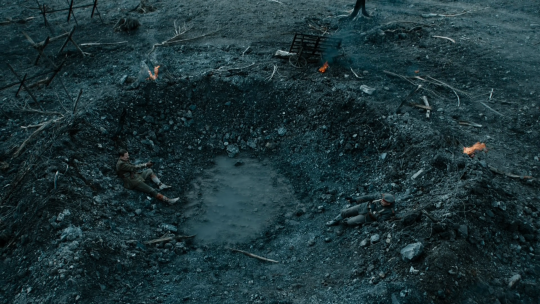
The glass replica of Bill is an odd story device that I don’t understand. Her primary function is to make the Doctor distrust Testimony, as anyone taking on his dead friend’s face must be evil, right? And this is the real issue with including Bill- it doesn’t make any sense. For starters, what point did Testimony make Bill? Was it when Blue Man Group shot a Looney Tunes hole through her chest? Or was it when the Cybermen turned her into Cyber Bill? Or maybe it was when Heather converted her body into a “sentient oil,” thus ending the human life of Bill Potts? No? She remembers all of that? Oh. Evidently, Bill died young, or sentient oil doesn’t age, or maybe Testimony doesn’t respect the ageing process and remembers humans as young? The other weird aspect is that the Doctor flip-flops on how he treats her. In one scene she’s just a replica, in other scenes, the Doctor is referring to her for advice. The episode can’t seem to decide if Bill is genuine or as real as a three dollar Bill.

Possibly the worst part of Bill’s introduction is that for a brief moment, they tease a cameo from Carole Ann Ford with Bill’s silhouette. It could have been one of the most exciting moments in Doctor Who history, and instead, it’s like “What? Why? We already said goodbye to Bill. Why is she here?” The First Doctor promised Susan he would be back and they had the perfect set-up. It’s like watching a bad movie where the characters are watching a good movie. It’s not a great idea to make the audience think about the better story we could have had. This is in no way a slight on Pearl Mackie either. I just can’t shake the idea that focusing more on Captain Archibald may have been a more effective use of screentime. But it’s that desire to do a curtain call, I suppose. One of which even brings back a few other Moffat inventions- Rusty the self-hating Dalek and Villengard.
While I complained about the old fashioned way they depicted the First Doctor, I was pleased by the scene where he can identify the asymmetry of Testimony’s glass face. That is how you present a classic Doctor in a modern Doctor Who setting. His methods are practical, but his observations are rooted in science. By looking with his eyes, he was able to deduce that she must be based on a real person, as a computer would not render an asymmetric face. It’s a marriage of the old and new far more effective than the First Doctor demeaning women. The First Doctor’s observation inspires the Twelfth Doctor to explore deeper answers using one of the greatest databases of all time- the Dalek Hivemind.

After a quick escape from Testimony in the First Doctor’s TARDIS, the Doctors, Three Dollar Bill, and Captain Archibald travel to Villengrad where Rusty has tapped into their legendary weapons systems. Daleks outside their casings scurry around the base of a tower where Rusty has set up a sort of sniper nest for taking out Daleks. It’s cool I guess. I like Rusty, so it’s a welcome treat to see him again. I also like that he didn’t die, so future writers can explore the concept of a morally ambiguous Dalek, should they so desire. The Doctor talks Rusty into helping him because helping the Doctor hurts the Daleks. It’s an enemy of my enemy situation, and it’s enough to keep the Doctors alive at the hands of a very deadly Dalek. Using Rusty’s connection to the hivemind, we learn that Testimony is merely a group of distant humans taking it upon themselves to document the lives of the dead. As the Doctor said- it’s not an evil plot.

During all of this, Mark Gatiss is busy giving the performance of his life as Captain Archibald. We find that the reason time stopped before his death was from Testimony’s need to archive his life. But in the waiting, he has found that he has lost his nerve. Like the Doctors, he must face his death. The trade-off is that Testimony will give the Doctor Bill in exchange for the Captain, which honestly, doesn’t make much sense. I don’t even know why this is on the table. Nothing about how Testimony operates makes a lot of sense. They’re benevolent, but sneaky and kidnappy. They offer to exchange life for life. When the hell did they pick up Bill? When the hell did they pick up Nardole? The Doctor, a Time Lord, could barely pilot his miracle time machine to save the humans from the previous episode, so he had to leave Nardole behind. Do you mean to tell me that a group of future humans can pinpoint Nardole’s point of death in a satellite next to a black hole with accuracy? And once again, like Bill, did Nardole die young?

I think this is where the goodwill of the audience begins to feel strained. More than anything, it’s a writing issue. It smacks of a first draft. Not only are bad ideas explored, they’re revisited until they lose any initial cleverness. Nardole isn’t just bald, he has invisible hair and glass nipples. I’ve complained in these reviews that we don’t learn much about Nardole, but I could have gone the rest of my life without learning either of those things. Much of the dialogue in this episode feels excessive. The First Doctor can’t just one and done it with the sexism, they have to keep returning to it. The Twelfth Doctor can’t just say “Oh, and you mustn’t tell anyone your name. No one would understand it, anyway. Except children.” He has to draw it out with “Children can hear it sometimes… If their hearts are in the right place… and the stars are too… children can hear your name.” Steven, mate, edit! It’s like every clever line of dialogue is wrung out for every drop of meaning until nothing clever remains. It reminds me of the Leela quote from Futurama- “Fry, remember I when I told you about always ending your stories a sentence earlier?”
Along with saying goodbye to Steven Moffat and Peter Capaldi, we’re also saying goodbye to Murray Gold who is at his most cloying with this cheery Christmas score that doesn’t match the tone. As I said in my previous reviews, I much prefer Segun Akinola’s music to his. I don’t mean to badmouth Gold’s contributions to the show, he’s had some solid bangers. Generally, it’s just not my style, much like Christmas episodes aren’t my thing either. However, as Christmas episodes go, this is the least annoying one to date. The fact that it’s Christmas only becomes apparent when they return the Captain to his crater only to have his death averted by Christmas carolling. Using a bit of time meddling, the Doctor was able to drop Captain Archibald into the relatively safe Christmas Armistice- a time when British and German soldiers came together for a cease-fire on Christmas Day. Before saying goodbye, we learn that Captain Archibald’s last name is Lethbridge-Stewart, which I found less hokey this time. It’s a nice way to do a Christmas episode in that it doesn’t dictate much of the rest of the proceedings. Though it is the only moment wherein the incongruous music fits.
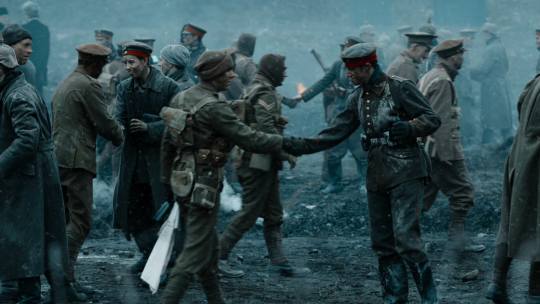
The first Doctor can move on to his next regeneration after realising that becoming a Doctor of war can be a positive thing. Seeing the soldiers come together allows him to see that along with the fear and death comes joy and prosperity. I was reminded of Latimer’s description of the Doctor from “The Family of Blood,”- “He’s ancient and forever. He burns at the centre of time and he can see the turn of the universe… And he’s wonderful.” The First Doctor rejoins fake Ben and Polly and reverts back to William Hartnell to regenerate into the Second Doctor. It’s been nice to see David Bradley playing the First Doctor. It’s something only Doctor Who can do, using the person who played William Hartnell in a biopic to then go on and play Hartnell’s Doctor for real. The man just works so well as the First Doctor. My only qualm with his performance is that he never feels as mischievous as the First Doctor could be. Hartnell had a sort of goading quality that I find lacking in Bradley’s performance.

The Twelfth Doctor says goodbye to Bill and Nardole and tells them that he needs to make his choice alone. Even after everything he’s seen, the Doctor can’t decide if he wants to regenerate or not. Personally, I could have gone for not. I loved Capaldi so much that I could have stood to see him go on for as long as Tom Baker. He brought a casualness and vulnerability to the role in a way I don’t think any have done quite as well before him. But all good things must come to an end. It’s pretty obvious though what the Doctor’s choice is going to be. The universe has convinced him to stick around, but first he has a few things to say to the next incarnation. In a fourth-wall breaking moment, the Doctor acts as a mouthpiece to Chris Chibnall and literally lays out the foundation for the Doctor’s morality. This is why when the Doctor says “They’ll get it all wrong without me,” it doesn’t just feel pointed, but prophetic.

The Doctor closes his eyes and accepts his regeneration as the regeneration energy arcs and sparks, exploding every cell in his body. The Doctor reopens her eyes and they are the brown of Jodie Whittaker’s eyes. Even though I now know the lacklustre writing that is to follow, I still find myself overjoyed to see the Doctor turn into a female. I was surprised to see that it still felt exciting. Much of Twice Upon a Time is so leisurely that it’s easy to forget that it contains the most controversial scene in Doctor Who since the Sixth Doctor choked Peri. I am glad I rewatched this episode because it was nice to remember a time when the future of Doctor Who felt exciting and new. In this way, rewatching series ten has reminded me of the exciting possibilities on the horizon with the Fourteenth Doctor.
And that’s me for the tenth series of modern Doctor Who. When I started this rewatch, I was sceptical that my opinion would change much. Coming away from it, I feel as though it may be Moffat’s finest work in the series. It’s as good as anything from the Russell T Davies era, if not better. That is, of course, entirely arguable. One of the things I enjoyed most about this rewatch was getting to share it with my boyfriend. His contribution to these articles was subtle, but the key to helping me organise my thoughts and find direction in my writing. I am also grateful to my friend Taryn who gave me the initial challenge of giving this series another go. We’ve talked about it a lot over the last few months- how Doctor Who can change for you over time. We remove the expectations preceding a first time viewing, and what remains is what is. It’s a nice reminder that Doctor Who doesn’t have to be what you expect in order to be good.


@tcmparty live tweet schedule for the week beginning Monday, January 10, 2022. Look for us on Twitter…watch and tweet along…remember to add #TCMParty to your tweets so everyone can find them :) All times are Eastern.
Monday, Jan. 10 at 9:15 p.m.
ONE WAY PASSAGE (1932)
An ocean voyage leads to romance for a dying heiress and a condemned criminal.
Friday, Jan. 14 at 8:00 p.m.
HELL DRIVERS (1957)
A trucker tangles with a corrupt boss and his thugs.
“Hello, Doctor. I trust you’ve been enjoying your accommodations?”
“Oh yeah, definitely,” replied the Doctor less than sincerely, looking around his dingy cell. “And I must say, Skaro looks great all things considered.”
“All things considered?” asked Davros smarmily.
“I blew it up.”
“Decidedly not,” the Dalek commander responded with an evil grin.
[cont’d under the cut…]
Hi everyone! So I know this isn’t cosplay, but one of my irl friends is the creator of this AMAZING Doctor Who multimedia Webcomic, so I thought I should share it with you. This is the seventh section, go to her page to start from the beginning. Happy reading!
Peter Capaldi had said in interviews leading up to this season premiere of Doctor Who that we wouldn’t really get a sense of his take on the iconic character until episode 5 or 6. That is pretty standard in Moffatt’s world of doing things as Matt Smith‘s version of the time traveller took a bit to get into it. I was concerned about Capaldi’s tenure because Smith’s first episode had one of the greatest introduction of any character in all of TV towards the end. With Capaldi it all seemed rushed.
And then the last couple of episodes kicked in.
We started to really get a peak of the type of Doctor Capaldi was going to be with Listen. Then Moffatt gave us one of the best and most Doctor Who like episode in years with TimeHeist. Last week’s The Caretaker was very reminiscent of the types of adventures that William Hartnell(theFirst Doctor) used to go on.
So next up we have a trailer for this weeks episode Kill The Moon. It looks intriguing and very much in line with the Doctor that I love where he is in space dealing with the most ridiculous thing ever – yet it is the scariest thing as well.
Check out the trailer below and you bet your ass I will be there this Saturday watching this episode.
Hermione Norris(“MI-5,” “Wire in the Blood“) guest stars in “Kill the Moon,” premiering Saturday, October 4 at 9:00pm ET.
https://www.youtube.com/watch?v=CJyh8AI_M00
Original Article http://bit.ly/1vtVk5x

